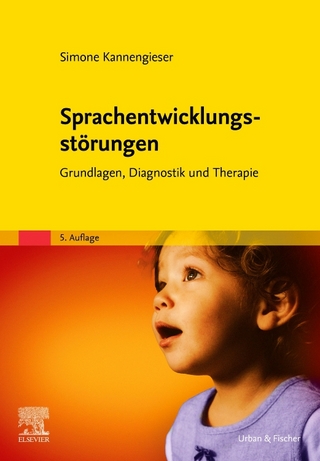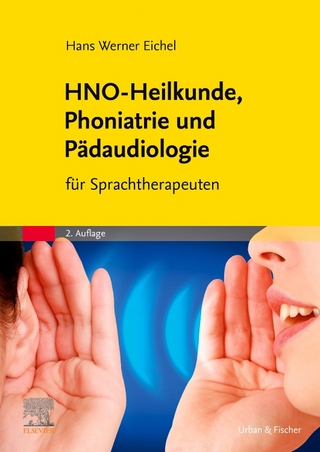
Clinical Phonetics and Phonology
Analyzing Speech in a Clinical Context
Seiten
2008
Academic Press Inc (Verlag)
978-0-12-356918-9 (ISBN)
Academic Press Inc (Verlag)
978-0-12-356918-9 (ISBN)
- Titel wird leider nicht erscheinen
- Artikel merken
Takes the reader through the process of making phonetic and phonological sense of disordered speech from the moment of first hearing it to completing an analytic description of it on which clinical decisions can then be more securely based. This book includes obtaining samples of speech data, and making transcriptional and instrumental records.
"Clinical Phonetics & Phonology" is ideal for intermediate and advanced students of speech pathology and for practicing Speech & Language Therapists/Pathologists who encounter immature and/or disordered speech in their clinical work. Anyone with a basic knowledge of phonetics and the basic principles of phonology, and who is interested in the often surprising ways in which even severely disordered speech maintains an internal consistency despite outward appearances, will find this book helpful and illuminating. The authors take the reader through the process of making phonetic and phonological sense of disordered speech from the moment of first hearing it to completing an analytic description of it on which clinical decisions can then be more securely based.The stages of the process are described in detail and include: obtaining samples of speech data; making transcriptional and instrumental records; analyzing the phonetic content in terms of features, segments and prosody; analyzing the relationship of the phonetic content to the pronunciation system of the language; and, identifying points of convergence with and divergence from the pronunciation norms.
Rather than adopting a view of the speaker as a passive implementer of simplification processes, this book sees speakers as constructing their own patterns of pronunciation and sees the ultimate task of analysis as describing those patterns in phonetic and phonological terms. The authors stress the importance of taking normal phonetic and phonological variation into account when dealing with immature and disordered data in line with the view that subsequent intervention aims to rehabilitate speakers in to their speech environment, not to move them towards standard models of speech.The methods, terms and concepts employed throughout are derived from a functionalist view of language which aims to avoid mentalist speculation. Emphasis is laid on what can be observed and how this can be interpreted as contributing to the communicative function of language. In this respect, the approach the authors develop is applicable to many other areas of phonetic and phonological investigation, e.g. bilingual speech, second language speech and accent variation.
However, while issues of phonetic and phonological theory are never far below the surface, the authors do not let them become too intrusive. The book is unusual in that it brings together perceptual phonetic analysis, instrumental phonetic analysis and phonological analysis of disordered and immature speech in a single volume.The book shows how perceptual and instrumental phonetic analyzes can complement each other by revealing different aspects of speech output behavior. It shows how phonological analysis which takes in a range of concepts and units, and does not limit itself to the level of the phoneme, illuminates patterns of atypical speech output. The book is structured to provide a clear explication of the analytical process, from first encounter with an individual with disordered or immature speech, through data collection, transcription, instrumental analysis, and phonological analysis. It contains detailed illustrations using data from real cases. The book addresses the important, yet frequently ignored, issues of normal variation and variability in speech production and how these issues relate to clinical analysis.The book's authors have, between them, many years of experience teaching and researching in the field of clinical phonetics and phonology and working with individuals with disordered or immature speech production.
Their book provides more than an introductory treatment of this complex area.
"Clinical Phonetics & Phonology" is ideal for intermediate and advanced students of speech pathology and for practicing Speech & Language Therapists/Pathologists who encounter immature and/or disordered speech in their clinical work. Anyone with a basic knowledge of phonetics and the basic principles of phonology, and who is interested in the often surprising ways in which even severely disordered speech maintains an internal consistency despite outward appearances, will find this book helpful and illuminating. The authors take the reader through the process of making phonetic and phonological sense of disordered speech from the moment of first hearing it to completing an analytic description of it on which clinical decisions can then be more securely based.The stages of the process are described in detail and include: obtaining samples of speech data; making transcriptional and instrumental records; analyzing the phonetic content in terms of features, segments and prosody; analyzing the relationship of the phonetic content to the pronunciation system of the language; and, identifying points of convergence with and divergence from the pronunciation norms.
Rather than adopting a view of the speaker as a passive implementer of simplification processes, this book sees speakers as constructing their own patterns of pronunciation and sees the ultimate task of analysis as describing those patterns in phonetic and phonological terms. The authors stress the importance of taking normal phonetic and phonological variation into account when dealing with immature and disordered data in line with the view that subsequent intervention aims to rehabilitate speakers in to their speech environment, not to move them towards standard models of speech.The methods, terms and concepts employed throughout are derived from a functionalist view of language which aims to avoid mentalist speculation. Emphasis is laid on what can be observed and how this can be interpreted as contributing to the communicative function of language. In this respect, the approach the authors develop is applicable to many other areas of phonetic and phonological investigation, e.g. bilingual speech, second language speech and accent variation.
However, while issues of phonetic and phonological theory are never far below the surface, the authors do not let them become too intrusive. The book is unusual in that it brings together perceptual phonetic analysis, instrumental phonetic analysis and phonological analysis of disordered and immature speech in a single volume.The book shows how perceptual and instrumental phonetic analyzes can complement each other by revealing different aspects of speech output behavior. It shows how phonological analysis which takes in a range of concepts and units, and does not limit itself to the level of the phoneme, illuminates patterns of atypical speech output. The book is structured to provide a clear explication of the analytical process, from first encounter with an individual with disordered or immature speech, through data collection, transcription, instrumental analysis, and phonological analysis. It contains detailed illustrations using data from real cases. The book addresses the important, yet frequently ignored, issues of normal variation and variability in speech production and how these issues relate to clinical analysis.The book's authors have, between them, many years of experience teaching and researching in the field of clinical phonetics and phonology and working with individuals with disordered or immature speech production.
Their book provides more than an introductory treatment of this complex area.
Senior Lecturer, Department of Human Communication Sciences, University of Sheffield, U.K. Department of Linguistics and Phonetics, University of Leeds, U.K.
| Erscheint lt. Verlag | 1.8.2008 |
|---|---|
| Zusatzinfo | Illustrations |
| Sprache | englisch |
| Maße | 152 x 229 mm |
| Gewicht | 1000 g |
| Themenwelt | Medizin / Pharmazie ► Gesundheitsfachberufe ► Logopädie |
| ISBN-10 | 0-12-356918-4 / 0123569184 |
| ISBN-13 | 978-0-12-356918-9 / 9780123569189 |
| Zustand | Neuware |
| Haben Sie eine Frage zum Produkt? |
Mehr entdecken
aus dem Bereich
aus dem Bereich
Grundlagen, Diagnostik und Therapie
Buch | Hardcover (2023)
Urban & Fischer in Elsevier (Verlag)
70,00 €
Die logopädische Therapie orofazialer Dysfunktionen
Buch | Softcover (2022)
Urban & Fischer in Elsevier (Verlag)
27,00 €
für Sprachtherapeuten
Buch | Softcover (2021)
Urban & Fischer in Elsevier (Verlag)
41,00 €


